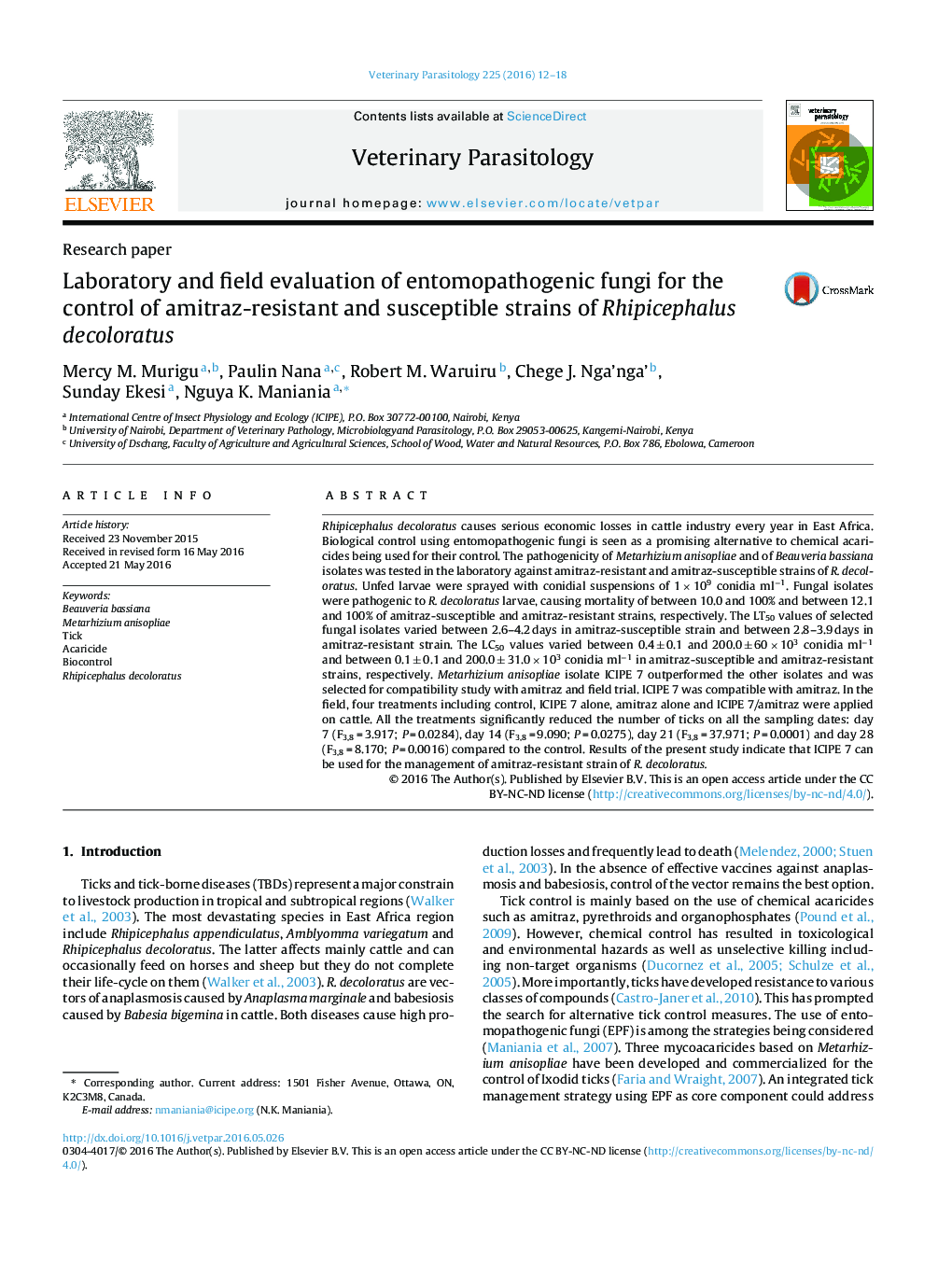| کد مقاله | کد نشریه | سال انتشار | مقاله انگلیسی | نسخه تمام متن |
|---|---|---|---|---|
| 5802111 | 1555651 | 2016 | 7 صفحه PDF | دانلود رایگان |

- The virulence of fungal isolates was evaluated against amitraz-resistant strain of Rhipicephalus decoloratus in the laboratory and field.
- Metarhizium anisopliae and Beauveria bassiana isolates were pathogenic to both amitraz-resistant and amitraz-susceptible strains.
- The virulence in terms of LT50 and LC50 varied according the fungal species and isolates.
- Weekly application of ICIPE 7 alone reduced on-host tick population by 69.2% and by 67.1% with M. anisopliae + amitraz in the field after 4 weeks.
- M. anisopliae ICIPE 7 was compatible with acaricide amitraz and is therefore a potential candidate mycoacaricide.
Rhipicephalus decoloratus causes serious economic losses in cattle industry every year in East Africa. Biological control using entomopathogenic fungi is seen as a promising alternative to chemical acaricides being used for their control. The pathogenicity of Metarhizium anisopliae and of Beauveria bassiana isolates was tested in the laboratory against amitraz-resistant and amitraz-susceptible strains of R. decoloratus. Unfed larvae were sprayed with conidial suspensions of 1 Ã 109 conidia mlâ1. Fungal isolates were pathogenic to R. decoloratus larvae, causing mortality of between 10.0 and 100% and between 12.1 and 100% of amitraz-susceptible and amitraz-resistant strains, respectively. The LT50 values of selected fungal isolates varied between 2.6-4.2 days in amitraz-susceptible strain and between 2.8-3.9 days in amitraz-resistant strain. The LC50 values varied between 0.4 ± 0.1 and 200.0 ± 60 Ã 103 conidia mlâ1 and between 0.1 ± 0.1 and 200.0 ± 31.0 Ã 103 conidia mlâ1 in amitraz-susceptible and amitraz-resistant strains, respectively. Metarhizium anisopliae isolate ICIPE 7 outperformed the other isolates and was selected for compatibility study with amitraz and field trial. ICIPE 7 was compatible with amitraz. In the field, four treatments including control, ICIPE 7 alone, amitraz alone and ICIPE 7/amitraz were applied on cattle. All the treatments significantly reduced the number of ticks on all the sampling dates: day 7 (F3,8 = 3.917; P = 0.0284), day 14 (F3,8 = 9.090; P = 0.0275), day 21 (F3,8 = 37.971; P = 0.0001) and day 28 (F3,8 = 8.170; P = 0.0016) compared to the control. Results of the present study indicate that ICIPE 7 can be used for the management of amitraz-resistant strain of R. decoloratus.
Journal: Veterinary Parasitology - Volume 225, 30 July 2016, Pages 12-18